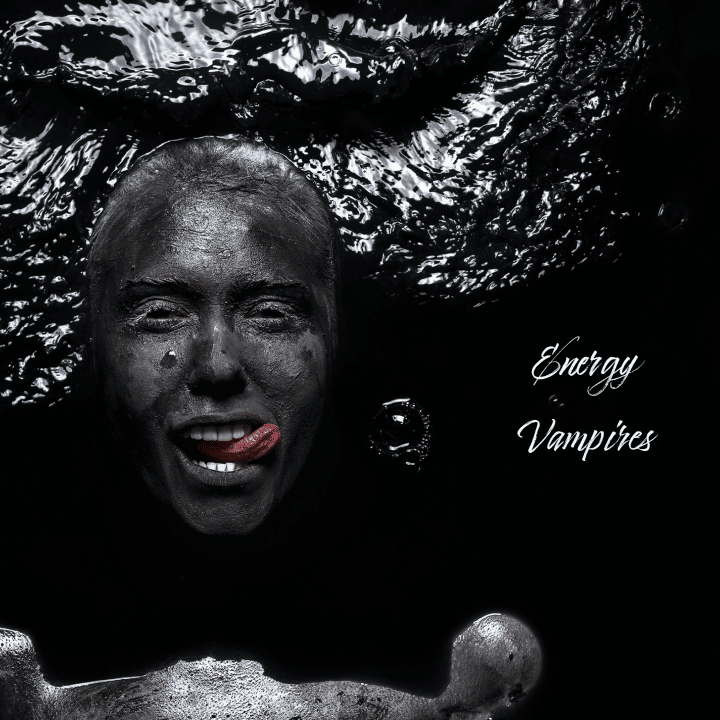Comprehending and Maneuvering Through Toxic Friendships: An Empath’s Handbook
 Our companions are a wondrous and enriching segment of our existence. Sometimes, they even evolve into our chosen kin through the ties of mutual affection and shared experiences.
Our companions are a wondrous and enriching segment of our existence. Sometimes, they even evolve into our chosen kin through the ties of mutual affection and shared experiences.
Wholesome friendships rest upon a balance framework. They are characterized by reciprocal support, trust, loyalty, acceptance, and honesty, all sprinkled with compassion. However, for the empath or highly sensitive individual, friendships can occasionally feel like a wild ride.
We may sense that we’re perpetually giving and giving, and at times we might even feel depleting fatigue. It can be challenging to determine when to establish limits with someone who might be exploiting our energy.
Friendships can embody various forms, and it’s vital to recognize that they don’t all follow the same pattern. They can range from casual acquaintances to profound, intimate connections with those we refer to as our “besties.”
Having a close confidant with whom you can share your innermost fears, aspirations, and vulnerabilities is essential. However, this reality is not always present. For those who are attuned to the emotions of others, experiencing betrayal or disappointment from someone we trust can be especially difficult. It can often resonate with the notion of “keeping your enemies closer.”
Some individuals are more extroverted with expansive social networks, while others tend to be introverted with tighter circles. Empaths can fit into either group. No matter which category an empath aligns with, it’s wise for us to practice discernment.
Empaths possess an innate talent for connecting with others’ feelings and sentiments. This makes us excellent listeners, frequently providing insightful remarks and potential solutions. We are inclined to be givers and readily switch to “service mode” to motivate, inspire, and elevate those who seek our assistance.
Indeed, those in our vicinity may exhibit insensitivity, narcissism, toxicity, or even abusive behavior, but it remains our choice whether to adopt that energy or let it pass through us. We alone are accountable for safeguarding our happiness ~ Aletheia Luna
Our acute intuition and innate healing prowess also bring clarity, hope, and solace to others. Empaths frequently hear, “I feel so much better after talking to you.” These are remarkable gifts we should share, and it’s a vital component of who we are.
Nevertheless, establishing clear emotional and spiritual boundaries is equally critical to our welfare, even among close friends. Lacking these boundaries may prevent an empath from distinguishing her own energies from those of others. This could lead to feelings of being overwhelmed and burdened.
When an empath’s emotional and energetic health begins to decline, it can trigger an avalanche of negative feelings such as depression, anger, anxiety, and confusion. This may create a recurring pattern where the empath finds themselves constantly besieged or exploited by the same individuals, which is unbeneficial for anyone involved.
If you feel more like a captive or a punching bag than a friend, it’s time to take proactive steps to break that cycle. A genuine friend will honor your boundaries and provide support. Many times, individuals are simply unaware that the balance has shifted, whereby they dominate conversations while you merely listen. Once made aware, they are often willing to adjust and cultivate a more balanced, healthy friendship, allowing you to feel like a friend instead of their therapist.
Be aware of your limits. Reflect on those who take you for granted and only reach out during crises. Learn to be less available and prioritize your self-care. While this may be challenging, acknowledge your right to respond only when it suits you. You’re not being unkind; you are prompting a selfish friend to contemplate, take responsibility, gain independence, and show compassion.
When engaging with intense or draining individuals, keep track of time. Avoid letting a lengthy chat leave you exhausted while they feel energized from recounting their latest issue. Set clear limits and relish true tranquility.
By consciously adopting self-care techniques to protect yourself, you can turn your sensitivity from a potential weakness into a source of personal power, helping you to navigate your friendships with increased peace, resilience, and energy.
Empaths, you possess the ability to elevate your experiences. What you require is skill—specifically, the kind of skill that aligns your adaptable empathic consciousness to better cater to your needs ~ Rose Rosetree
Embrace Your Empathic Essence: The starting point is self-awareness. Recognize that your capacity to feel intensely is a gift requiring boundaries. Acknowledge feelings of overwhelm or fatigue and don’t disregard them. Connect with fellow empaths or supportive individuals who can affirm your experiences and extend non-judgmental support.
Establish Definite Boundaries: This is crucial. Learn to decline without guilt. Determine what you can tolerate in interactions. This may involve restricting contact, turning down certain requests, or simply voicing your needs. Realize who you are apart from others’ feelings. This aids in distinguishing your emotions from those you might absorb from others. Journaling and self-reflection can assist with this.
Practice Emotional Detachment: It’s feasible to care for others without adopting their burdens. Cultivate empathy without entanglement. Provide support from a position of strength rather than absorption. Energy drains often employ guilt, victimhood, drama, or excessive demands to exhaust others. Recognize these tactics and disengage.
Reduce Your Exposure: Whenever possible, lessen or eliminate interactions with individuals who consistently leave you feeling drained, anxious, or angry. This might involve unfollowing them on social media, avoiding specific events, or even terminating relationships that cannot be salvaged.
Energy Shielding: Before entering potentially taxing environments, visualize a protective sphere around yourself. Envision it repelling negative energy while welcoming positive energy. Some empaths prefer imagining a mirror facing outwards to reflect negativity. Envision a cleansing shower of light or water washing away any negative energy absorbed at day’s end.
Mindfulness & Meditation: These practices assist in maintaining presence and experiencing your emotions without becoming engulfed by them. They also help build inner resilience.
Grounding Practices: Connect with the earth’s energy to stabilize your own. This can include walking barefoot on grass, meditating outdoors, or visualizing roots extending from your feet into the ground.
Set a Clear Intention: At the start of your day, mentally affirm your intention to safeguard your energy and well-being from anything that does not align with your highest good.
Regular Self-Assessment: Periodically throughout the day, take a moment to scan your body. Where are you feeling tension? What emotions are present? This self-awareness allows you to address energy leaks before they escalate.
Create a Safe Haven: Designate a specific area in your home where you can retreat and recharge undisturbed. Populate it with items that bring you tranquility and comfort. Spend time in nature as well; the natural environment has a significant restorative impact on empaths, helping to cleanse and balance your energy.
Energetic Cleansing: Just as you would shower to clean your physical body, regularly cleanse your energetic field. This can include practices like taking salt baths, smudging with sage, or using essential oils.
Limit News & Social Media Exposure: Continuous exposure to negative news cycles and online conflicts can be extremely draining for empaths. Be mindful of what you consume and take breaks when necessary.
Establish a Self-Care Routine: Focus on activities that revitalize your energy. This could encompass spending time in nature, engaging in creative hobbies, ensuring adequate sleep, or savoring quiet moments alone.
Crystal Defense: Specific crystals like Black Tourmaline, Amethyst, and Labradorite are thought to possess protective qualities that can assist in shielding empaths from negative energy. Keep them on you or place them in your surroundings.
Seek Professional Guidance: If you consistently encounter challenges managing your empathic capacity or dealing with toxic connections, consider reaching out to a therapist, energy healer, psychic, or life coach who specializes in assisting empaths and highly sensitive individuals.
|
With a lifelong journey of empathic, intuitive, and psychic abilities, Angelic Heights (Gail) has learned the significance of employing her gifts for the greater good. While marriage and a paralegal career occupied her until her early 30s, her focus is now solely on enlightening, uplifting, inspiring, and guiding those who seek her insights. Gail emphasizes the necessity of understanding the energies of those we choose to surround ourselves with. Regardless of the specific challenges faced—be it romance, career, business, or family—the fundamental needs of every client are always distinctly apparent in her readings. She quickly identifies critical issues and delivers precise messages and solutions. Experience a reading with her today at PsychicAccess.com |
For empaths, who are acutely sensitive to the emotions and energies of those around them, the journey through friendships can be intricate and demanding. While nurturing close relationships can be rewarding and enriching, it is essential to remain cognizant of the potential for toxic friendships to adversely affect our well-being. Grasping what defines a toxic friendship and how to navigate these dynamics is vital for empaths to sustain their emotional health and boundaries.
Toxic friendships can present themselves in numerous forms, yet common indicators include feeling depleted or fatigued after interactions, a persistent sensation of being criticized or judged, and a notable absence of support or understanding from the other party. These relations can be emotionally exhausting and harmful to an empath’s mental and physical health. It is crucial for empaths to recognize these warning signs and take proactive measures to shield themselves from the detrimental effects of toxic friendships.
A pivotal component in managing toxic friendships as an empath involves establishing boundaries. Empaths often harbor a strong inclination to aid and support others, but this can lead to neglecting their own needs and well-being. It’s vital for empaths to confer clear boundaries with friends displaying toxic behaviors, such as limiting the time spent together or defining topics that are off-limits. By setting limits, empaths can protect themselves from emotional exploitation by toxic friendships.
Moreover, it is imperative that empaths engage in self-care and prioritize their welfare within relationships. This may entail taking time for themselves to recharge and process their emotions, seeking support from mental health professionals, or immersing themselves in activities that foster joy and fulfillment. By emphasizing self-care, empaths can cultivate resilience and enhance their capacity to manage the complexities involved in toxic friendships.
In certain instances, it may be essential for empaths to sever ties with a toxic friendship entirely. Although this can be a challenging and painful choice, it is fundamental for empaths to prioritize their own mental health and well-being. Parting ways with a toxic friend does not imply that the empath is unkind or lacks empathy, but rather that they are making necessary strides to protect themselves from harm.
Overall, comprehending and navigating toxic friendships as an empath necessitates self-awareness, boundary setting, and a commitment to self-care. By identifying the hallmarks of toxic friendships, establishing boundaries, and prioritizing their well-being, empaths can shield themselves from the adverse consequences of these relationships while fostering healthy, fulfilling friendships that bolster their emotional growth and well-being. Continue reading














